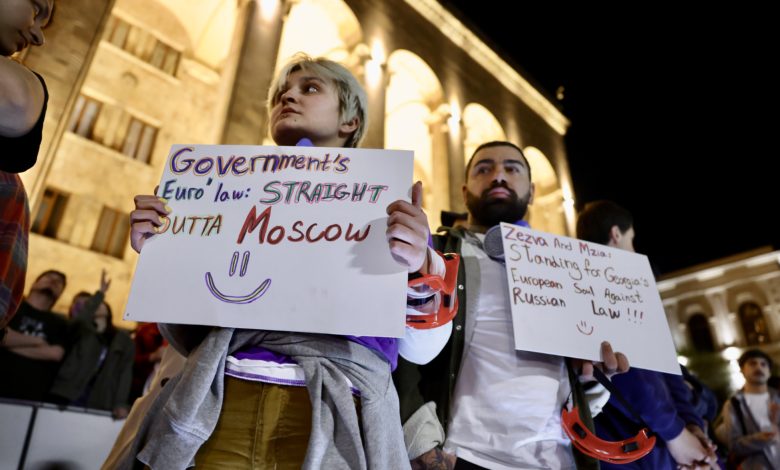
Venice Commission Seeks Third-Party Intervention in Georgia’s Foreign Agents Law Case at ECtHR
The Venice Commission is seeking permission to intervene as a third party in the pending European Court of Human Rights case, GYLA and Others v. Georgia, in which more than 100 Georgian civil society and media groups are challenging Georgia’s Law on Transparency of Foreign Influence, a.k.a. Foreign Agents Law.
The Venice Commission, the Council of Europe’s advisory body on constitutional matters, had previously issued a strong recommendation to Georgia to repeal the law, warning that it could have a chilling effect on civil society and freedom of expression.
“The [Venice Commission] seeking to intervene as a third party shows that the Commission views this law as a serious threat to the rule of law,” Saba Brachveli, a lawyer with the Civil Society Foundation, one of the applicant organizations, told Civil.ge, noting that such a move is “very rare.”
The Foreign Agents Law, the second such legislation introduced after a similar bill was dropped in 2023, was adopted amid mass protests in the spring of 2024. It requires organizations receiving more than 20% of their funding from abroad to register as entities “pursuing the interests of a foreign power.” The law was widely referred to as the “Russian Law,” aimed at cracking down on civil society and dissent, while the GD claimed that it promoted transparency.
Although not yet strictly enforced, the law remains in effect despite Georgian Dream passing a new foreign agents law in 2025, which it claims is an exact copy of the American Foreign Agents Registration Act (FARA).
The complaint to ECtHR was filed after Georgia’s Constitutional Court refused to temporarily suspend the law, though it agreed to consider the case.
In the complaint, filed October 21 with the Strasbourg Court by 120 civil society organizations, 16 media groups, and four individuals, the applicants allege that although the law has not yet been enforced, its mere enactment interferes with their rights under the European Convention on Human Rights.
Applicants cite Articles 10 and 11, which protect freedom of expression and freedom of assembly and association, along with Article 13 on the right to an effective remedy, Article 14 on the prohibition of discrimination, and Article 18 on the misuse of restrictions on rights.
Also Read:
- 25/04/2024 – Over 100 CSOs, Media Suspend Cooperation with Government
- 08/04/2024 – More than 400 CSOs Denounce Foreign Agents Bill
This post is also available in: ქართული